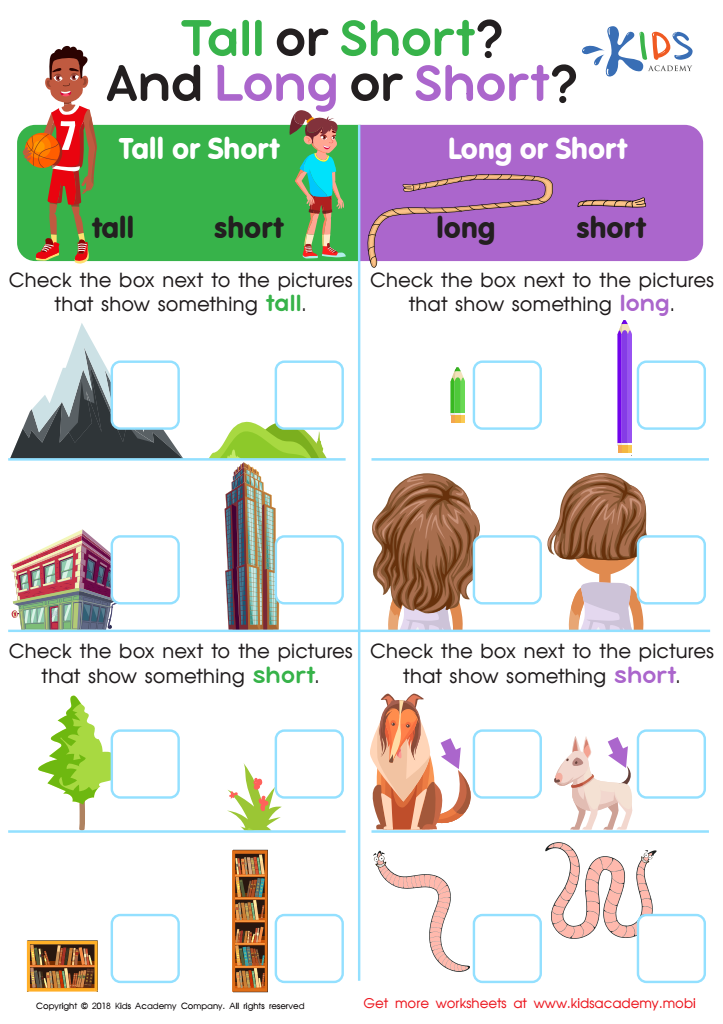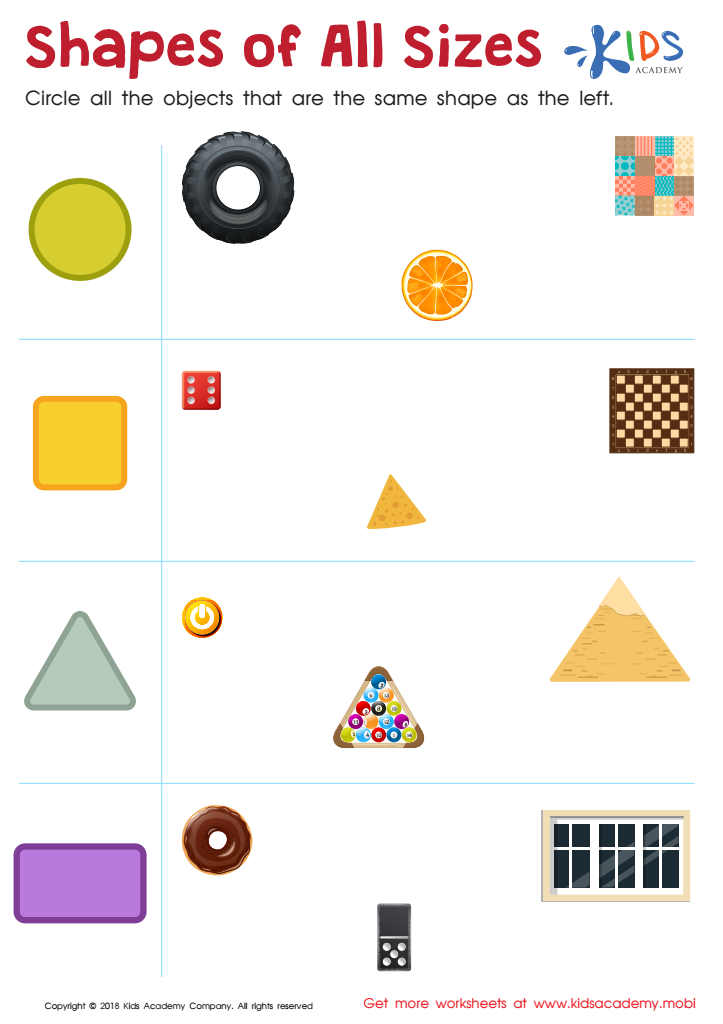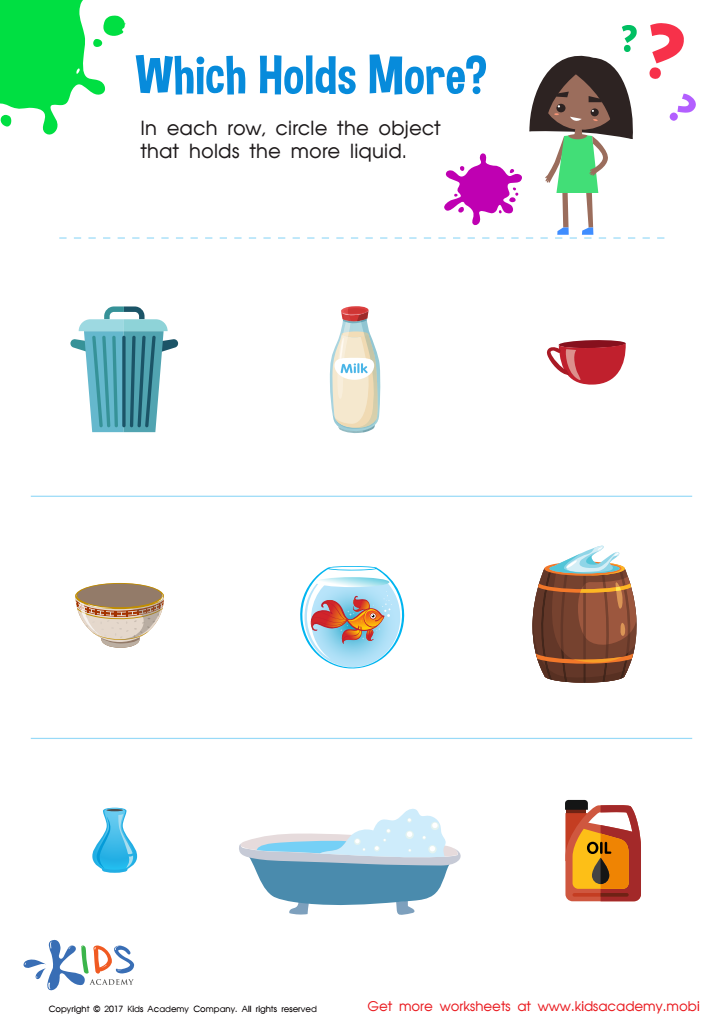Basic measurement concepts Normal Math Worksheets for Ages 4-6
3 filtered results
-
From - To
Explore our engaging Basic Measurement Concepts Math Worksheets designed for children ages 4-6. These worksheets introduce young learners to essential measurement skills through fun and interactive activities. Children will develop a strong understanding of comparing lengths, heights, and weights using visually stimulating examples. With colorful illustrations and straightforward instructions, these resources cater to diverse learning styles, making math enjoyable for early learners. Perfect for home or classroom use, our worksheets encourage hands-on practice while promoting critical thinking and problem-solving skills. Help your child build a solid foundation in measurement concepts today with our thoughtfully crafted math activities!


Tall or Short and Long or Short? Worksheet


Shapes of All Sizes Worksheet


Which Holds More: Capacity Worksheet
Understanding basic measurement concepts is crucial for children aged 4-6 as it lays the foundation for their mathematical understanding and everyday problem-solving skills. During these early years, children are naturally curious about the world, making it an ideal time to introduce them to ideas of size, length, weight, and volume.
Parents and teachers should care about this because measurements play a significant role in everyday activities. For example, when baking, children can learn about measuring ingredients, which teaches them both math and cooking skills. Through hands-on activities like comparing lengths of objects with non-standard units (like using blocks or their own feet), children develop critical thinking and observational skills.
Additionally, mastering measurement concepts helps build spatial awareness, which is essential for geometric understanding later in schooling. Engaging with measurement supports language development as children learn terms like "longer," "shorter," or "heavier."
Caregivers who emphasize basic measurement in playful and interactive ways foster a positive relationship with mathematics, reducing math anxiety in future learning. This approach not only enhances cognitive abilities but also prepares children for academic success, making early exposure to measurement invaluable in their formative years.
 Assign to My Students
Assign to My Students




















